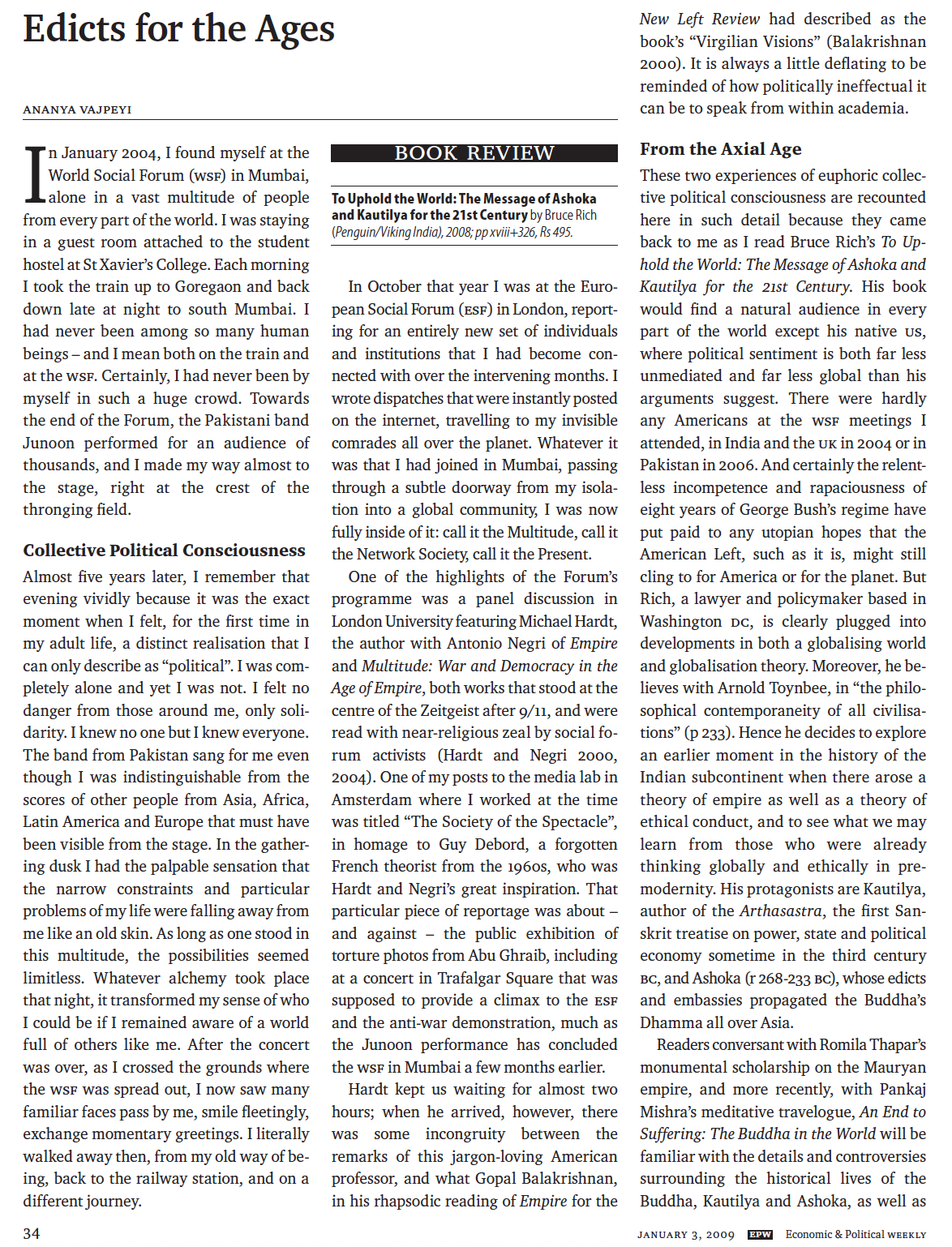- Ananya Vajpeyi
- Economic and Political Weekly (India)
- January 3, 2009
- 34-35
"To Uphold the World carries a Foreword by Amartya Sen, and also engages seriously with his writing, together with Martha Nussbaum, on human capabilities. Rich is similarly engaged with the progressive ideas of Karl Polanyi, Manuel Castells, Vaclav Havel, Joseph Stiglitz and a number of other contemporary thinkers and theorists, including Hardt and Negri. Gandhi too is an obvious choice, for a book about the revival of ethical and ecological thinking within a framework of civilisation, globalisation and cosmopolitanism. The Dalai Lama provides an encouraging and appreciative Afterword. Rich, a lawyer and policymaker based in Washington DC, is clearly plugged into developments in both a globalising world and globalisation theory. Moreover, he believes with Arnold Toynbee, in “the philosophical contemporaneity of all civilisations” (p 233).
Hence he decides to explore an earlier moment in the history of the Indian subcontinent when there arose a theory of empire as well as a theory of ethical conduct, and to see what we may learn from those who were already thinking globally and ethically in pre-modernity. His protagonists are Kautilya, author of the Arthasastra, the first Sanskrit treatise on power, state and political economy sometime in the third centuryBC, and Ashoka (r 268-233 BC), whose edicts and embassies propagated the Buddha’s Dhamma all over Asia. Rich writes with ease, so that the complex statecraft laid out in Kautilya’s text and the conflicted personality of Ashoka shine through his accounts, as though 2,300 years had not passed since these men founded a tradition of political thought for the subcontinent...For Rich...the silent Ashokan inscriptions speak loud and clear across continents and centuries. That is why he may pause along the roadside of eternity and read, effortlessly, the message graven on the rocks planted there for all time by an agonised king, long long ago."



